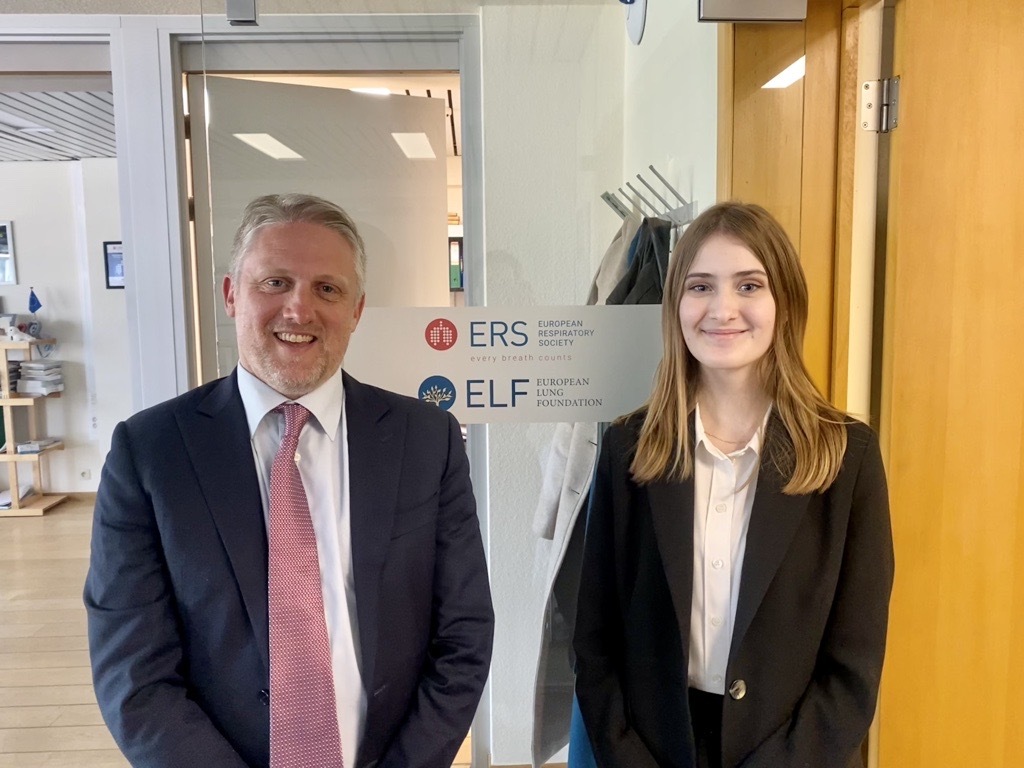
Our core content on Lung conditions and related factsheets has been translated to a number of other languages.
For more languages explore all available Factsheet translations.
Volunteer as a translator or learn how to translate using Chrome, Firefox or Edge browsers.
 European Lung Foundation
European Lung Foundation


Our core content on Lung conditions and related factsheets has been translated to a number of other languages by our volunteer team.
For more languages explore all available Factsheet translations.
Volunteer as a translator or learn how to translate using Chrome, Firefox or Edge browsers.
Home » Youth Group Activities

On 8 April 2025, the European Respiratory Society (ERS) explored how a tobacco-free generation could protect lung health in the future. ELF attended the event where Petra shared her insights as a young patient advocate.
Tobacco smoking is the main cause of many lung diseases, including COPD and lung cancer. The event brought together patients, healthcare professionals, public health organisations and policymakers. They discussed the risks of smoking and how action can be taken to reduce its impact on respiratory health.
Last year, the European Commission proposed recommendations to establish smoke-free environments across the European Union. The recommendations encourage EU member states to expand smoke-free spaces to areas popular amongst children, such as playgrounds and swimming pools. During the event, recent research from the ERS was presented to discuss the likelihood of implementing these policies in the future.
Petra, who lives with cystic fibrosis, played a vital role in representing the perspectives of young patients at the event. She highlighted how, despite continuous efforts to control access to tobacco in Hungary, around 1 in 3 of her classmates still smoke or use e-cigarettes. Many young people who take up smoking are pressured by their friends and wrongly believe that the negative health effects of tobacco only affect older adults.
As a result of Petra’s discussions, she plans to work with the Lungs Europe team to develop an advocacy toolkit. She hopes this will encourage countries across Europe to implement stricter tobacco control policies and protect the lung health of future generations.
We want everyone in Europe to have trustworthy information about lung health in their own language. The ELF Youth Group is for people aged 16 to 24 living with a lung condition and offers a unique opportunity to help ELF pay attention to young people’s needs and continue to improve lung health and advance diagnosis, treatment and care for all.
Youth GroupSign up to get the latest information and research on lung conditions, hear about our upcoming events and campaigns, plus views from experts and patients! You can unsubscribe at any time.
ELF is a non-profit organisation registered as a UK company (VAT no. GB 115 0027 74) and charity (no. 1118930).
Our Brussels office enterprise number is 0738.383.695
European Lung Foundation's TR ID number in the Transparency Register is: 094039644810-79